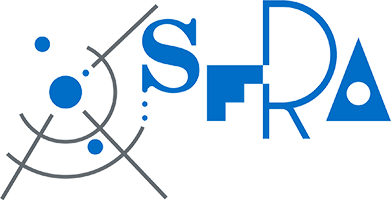SFRA 2025
“Trans People are (in) the Future”: Queer and Trans Futurity in Science Fiction
University of Rochester, New York, USA
July 30th – August 3rd
Hosts:
The Susan B. Anthony Institute: The Program for Gender, Women’s and Sexuality Studies, University of Rochester
Organizer: Stefanie Dunning
REGISTRATION FOR THE 2025 CONFERENCE IS NOW CLOSED.
Location:
Rochester, New York
Mode:
Hybrid Conference (in person and virtual attendance)
Email for queries:
Conference Hotel Booking:
Hilton Garden Inn University of Rochester/Medical Center
30 Celebration Drive, Rochester, NY 14620
585-424-4404
Book by July 3
Hilton Garden Inn UR/Med Ctr SFRA booking link
Courtyard Rochester Brighton
33 Corporate Woods, Rochester, NY 14623
585-292-1000
Book by July 2
Courtyard Rochester Brighton SFRA Booking link
Hampton Inn and Suites by Hilton Rochester Downtown
101 South Union Street, Rochester NY 14607
585-450-3801
Book by July 9
Hampton Inn and Suites by Hilton Rochester Downtown SFRA Booking link
Theme
“Trans People are (in) the Future”: Queer and Trans Futurity in Science Fiction
The tagline for this year’s conference is adapted from an art exhibit by Alisha Wormsley in which her art pieces assert that “there are black people in the future,” as a way to insist that unrelenting antiblackness will not steal the future from black people. Given the perpetual violence trans people are subject to, Wormsley’s insistence on black futurity resonates powerfully in trans contexts as well. Science fiction/Speculative Fiction writers, from Rivers Solomon to Kai Ashanti Wilson to Charlie Jane Anders, are all producing work that imagines trans and queer futurity in powerfully capacious ways, rejecting figurative and literal attempts at erasing trans and queer lives. This year’s conference focuses on issues related to trans and queer themes, though we encourage papers and panel proposals in all areas relevant to science fiction studies.
Keynotes include: Ryka Aoki and Rivers Solomon
Accepting proposals for the conference theme and open call of any topics related to sf studies.
Possible topics include, but are not limited to:
- Trans futurities
- Queer futurities
- Temporality and Gender/Sexuality
- Queer speculative economies
- Trans speculative ecologies
- Queer speculative ecologies
- Interrelations between climate change and gender/sexuality
- Queering the Canon
- Trans Fandom/Gaming Cultures
- BIPOC futurities
- BIPOC trans and queer futurities
- Transnational feminism and speculative futurities
- Speculative intersectionalities
- Queer and Trans Dystopias and Utopias
- Disability studies approaches to futurity, science fiction, and speculative ecologies
- Open topics: If you have a paper/panel you’d like to construct and you don’t see your theme reflected directly here, submit it and we will consider it.
Format: Both in-person and virtual participation options will be possible, and care will be taken to accommodate other requests related to the political climate in certain states that have adopted anti-DEI and anti-LGBTQIA laws. Please indicate in your proposal what kinds of accommodation are required for your situation. Also, please include any requests related to accessibility.
On Site Location: The conference will be held in the beautiful and highly accessible city of Rochester, with easy access to important sites like Niagara Falls, the Adirondacks, and the Finger Lakes; with easy connection through Toronto (two hours from Rochester) and New York City to the Frederick Douglass International Airport in Rochester. The city of Rochester, which was home to both Frederick Douglass and Susan B. Anthony, has a strong history of social justice and is a vibrant, welcoming community with great nightlife, restaurants, museums, and cultural events.
Submitting a Proposal: Submit either a panel proposal (for panels with up to 3 papers and a respondent and/or chair) or a single paper abstract by November 15th, 2024 to SFRARochester@gmail.com. Please do not hesitate to contact us if you have any questions or concerns related to the conference. All questions can be directed to SFRARochester@gmail.com.
Membership and Registration: All conference presenters must be members of the SFRA and pay the conference registration fee (membership runs calendar year). All SFRA members receive subscriptions to the journals Science Fiction Studies, Extrapolation, and The SFRA Review and have the ability to add discounted subscriptions to other journals, including Science Fiction Film and Television, Foundation, Journal of the Fantastic in the Arts, The New York Review of Science Fiction, and Locus (more info here). SFRA members attending the conference in person are also eligible for travel grants of up to $500(US) to help subsidize conference costs (more info here). The call for travel grant applications will be included in conference acceptance notifications.
